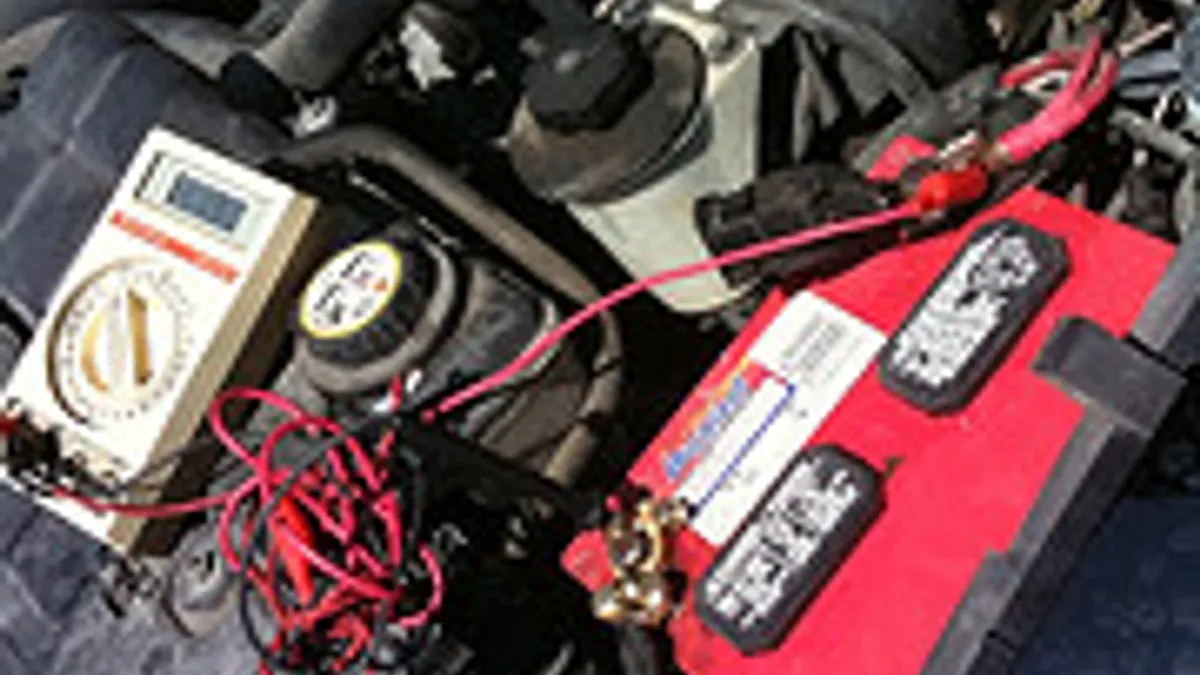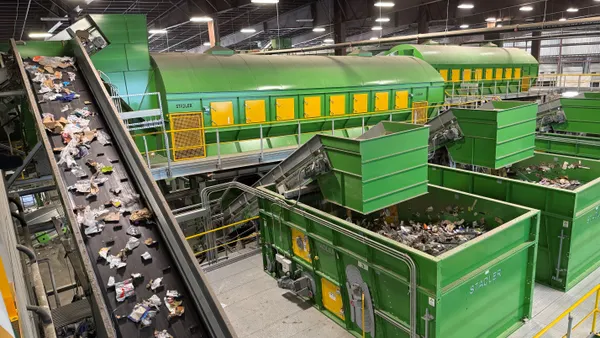Dive Brief:
- Researchers at MIT have devised a system that recycles materials from used car batteries and transforms the waste into solar panels.
- The system uses a compound extracted from the batteries, perovskite, to create power without producing harmful emissions in the process.
- The team discovered that the recycled lead from the batteries has the potential to create power for decades. Each 'strip' of recycled lead could produce enough solar panels to power 30 households.
Dive Insight:
The researchers found many advantages to using discarded vehicle batteries and said that the process is simple and inexpensive. Better still, the MIT team believes the project is easily scaleable.
The W.M. Keck Professor of Energy at MIT, Angela M. Belcher, said more than 200 million batteries will be discarded in the U.S. as new auto battery technology supplants the outdated supply. Although about 90% of lead found in old batteries is reused in new batteries, there will be a glut of lead-acid batteries once the more efficient lithium-ion batteries take over the marketplace, according to Belcher.
Creating the solar panels is a viable application for an otherwise useless material, putting the lead to good use and removing a potential environmental hazard.













